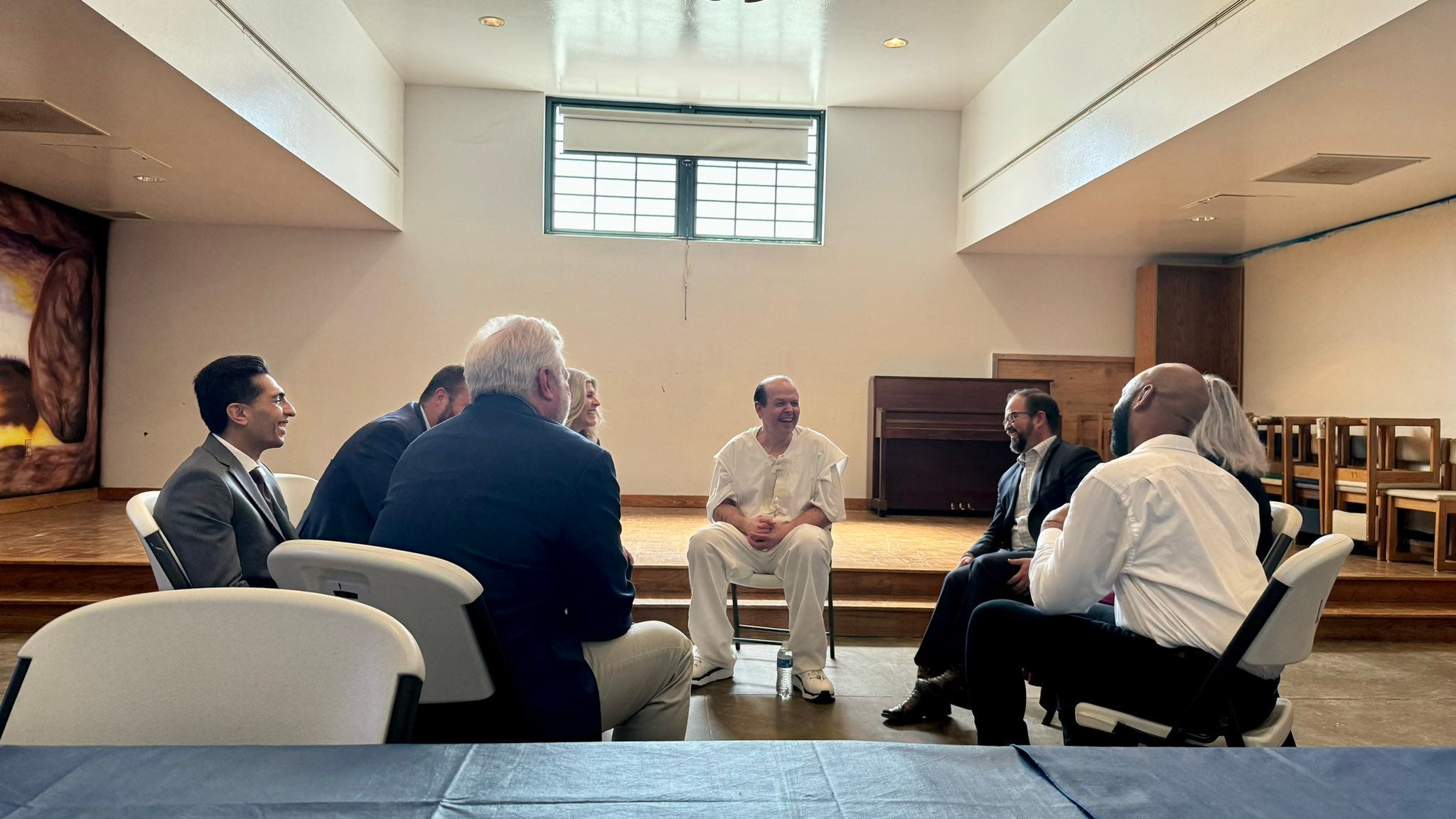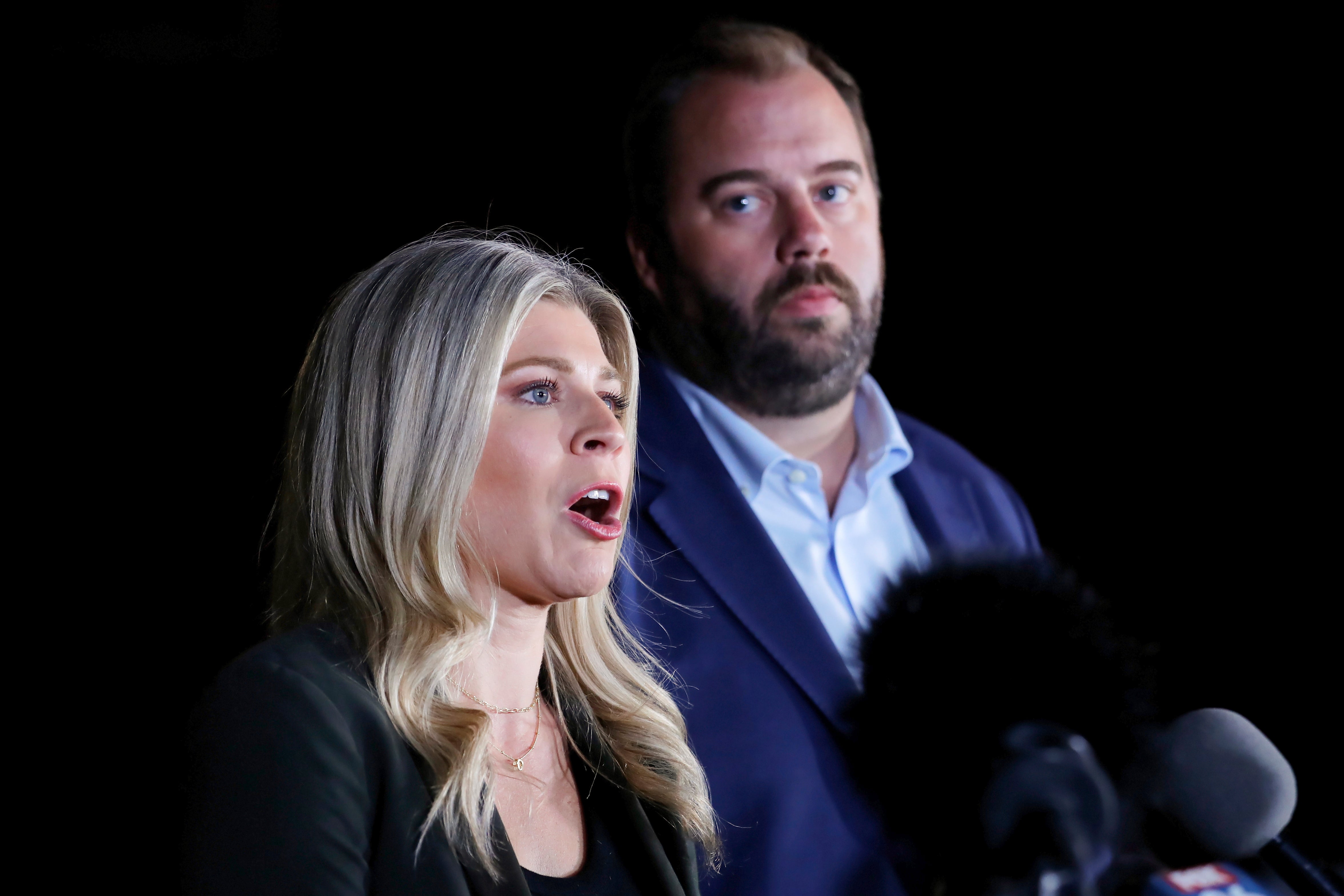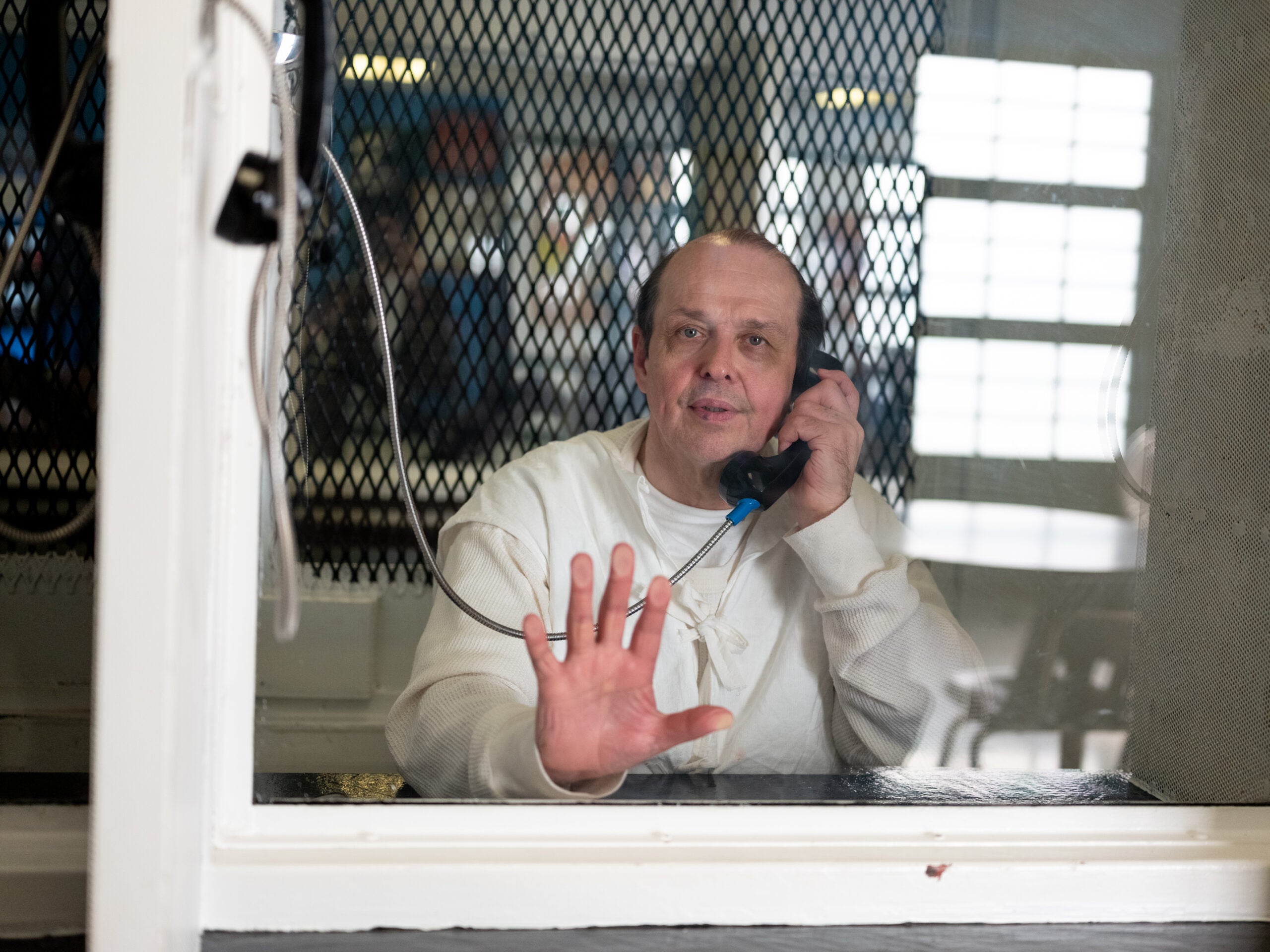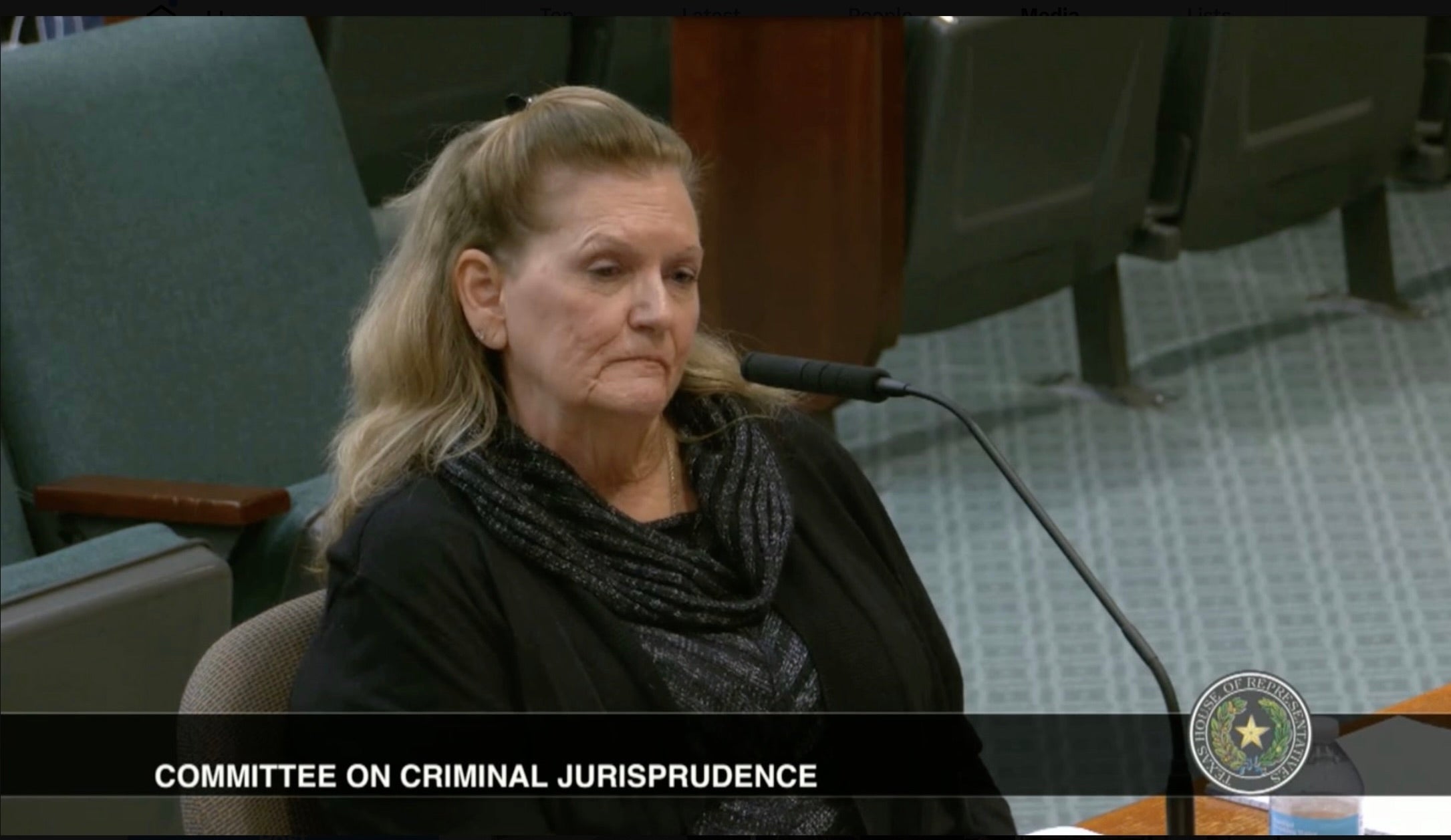Dr Phil warns Texas ‘shaken baby’ execution would ‘100%’ be miscarriage of justice
Dr Phillip McGraw testified at a Texas legislature hearing regarding the case of Robert Roberson, an autistic death row inmate whose life was spared last week after lawmakers subpoenaed him to testify on Monday.
Roberson, 57, has been blocked from appearing at the hearing in-person. He is currently at the Allan B Polunsky Unit in Livingston. In 2003, Roberson was convicted of capital murder in the death of his two-year-old daughter Nikki Curtis the year prior.
McGraw, the TV doctor and chat show host known as Dr Phil, holds a doctorate degree in clinical psychology has interviewed Roberson in prison.
“I am 100 percent convinced that we are facing a miscarriage of justice here,” McGraw told the committee. “I do not believe that Mr Roberson has had due process in this case.”
He continued telling the nine members of the Texas House of Representatives Committee on Criminal Jurisprudence that he does not believe a crime occurred, a belief also now held by the former lead detective that prosecuted Roberson.
Separately, a litany of medical evidence, including Nikki’s prior illnesses and prescribed medications, was not mentioned during the trial, he noted.

“How was this case tried without all of this stuff being put into the record?” McGraw said, stating Roberson should be granted a new trial.
“If we are going to deprive someone of their life, that comes at a very high standard, a very high standard of proof, a very high standard of evidence.”
Terre Compton, an original juror, told the committee she would’ve found Roberson “not guilty” had she known about Nikki’s medical history.
Roberson most likely would’ve been executed by lethal injection last week had the committee not issued a subpoena for his testimony as part of a hearing on whether Article 11.073, a 2013 state law dubbed the “junk science statute,” is being applied in criminal cases as intended.
The lawmakers, Roberson’s attorneys and McGraw say it has not been.
Over the weekend, the state attorney general’s office announced it would allow Roberson to testify over Zoom, a decision in defiance of the subpoena, which states the respective parties must agree to alternative accommodations.
Roberson declined to appear virtually for multiple reasons cited by his attorneys, including his lack of experience using Zoom and his autism spectrum disorder, which was not diagnosed until 2018. His attorneys argued the move would also deprive him of legal counsel.

The Independent has emailed the Texas Department of Criminal Justice and attorney general’s office for comment. During a district court hearing last week, the attorney general’s office acknowledged that the subpoena was lawful.
Prosecutors claimed Roberson murdered his daughter by shaking and striking her, resulting in blunt-force trauma, otherwise known as “shaken baby syndrome.”
The condition is typically diagnosed when the following symptoms are present: subdural hematoma, brain swelling and retinal hemorrhages. At the time of Nikki’s death, the medical community believed the symptoms meant a child had been violently shaken, and possibly struck against a blunt surface. It’s now believed that other medical problems can result in the same symptoms.
Roberson would’ve been the first person in the US to ever be executed in connection with the condition, which has widely be discredited by medical experts.
The death row inmate has always claimed his innocence and a group of medical professionals recently told the Texas Board of Pardons and Paroles they think his daughter died from a combination of severe undiagnosed chronic viral pneumonia compounded by a secondary acute bacterial pneumonia that progressed to sepsis.

The board unanimously voted against granting him clemency on Wednesday. The US Supreme Court said it couldn’t intervene.
A bipartisan group of lawmakers in a pro-death penalty state issued the subpoena that same evening. A Travis County judge granted a temporary restraining order stopping the execution on Thursday, when Roberson was scheduled to be executed.
In a dash against the clock, the Texas Attorney General’s Office appealed the court’s ruling in order to make sure the execution went ahead. The state criminal appeals court vacated the restraining order, also pressing for the execution to continue as planned. However, lawmakers who wanted to stop it then appealed that decision to the Texas Supreme Court, which granted the stay.
Texas Governor Greg Abbott, the only person with the ability to grant Roberson a 30-day reprieve, had not spoken out on the matter until Monday, when he asked the state supreme court to throw out the subpoena, stating that the power to grant clemency is his alone and lawmakers have “stepped out of line.” By issuing the subpoena, legislators effectively gave Roberson at least a 90-day stay of execution.
The Anderson County District Attorney, the prosecuting body, can now request another execution date for Roberson. His attorneys would get about three months notice in accordance with Texas law.
“If the House Committee on Criminal Jurisprudence thinks itself entitled to testimony from a criminal on death row, a point which is not conceded, it could have done so without erasing the authority given exclusively to the Governor,” Abbott wrote in a letter to the court.
“Only at the eleventh hour, when the Constitution empowers the Governor to make the last move, did the House Committee decide to violate the Separation-of-Powers Clause.”

The governor submitted the letter in support of a motion the attorney general filed with the court on Saturday asking to reverse the decision allowing Roberson to testify. The court is now taking up further briefing on the matter.
Elsa Alcala, a former judge on the Texas Court of Criminal Appeals, noted during the hearing that one of Roberson’s few options moving forward involves the criminal appeals court deciding on their own to reopen the case.
Days before his daughter’s death, Roberson took Nikki to the emergency room in Palestine, Texas as she’d been suffering from a respiratory infection, diarrhea and vomiting. A doctor prescribed Phenergan and Roberson took Nikki home. The next day, she developed a 104-degree fever and was given another dose of the medication combined with codeine, court records state.
The Federal Drug Administration no longer recommends the combination to children due to risks of induced breathing difficulties and death. Nikki had a long history of chronic health conditions, including breathing apnea.
Roberson later left the hospital with his daughter, took her home and put her to bed.
The following morning, he said he awoke to a strange cry and found Nikki on the floor at the foot of the bed. He said he comforted her and the two fell back asleep, court filings state. When he woke up later that morning, he said Nikki was unconscious with blue lips. He rushed her to the emergency room, but she already had signs of brain damage, including fixed and dilated eyes.
She was revived at the hospital and later taken off life support, a decision attorneys claim was made without consulting Roberson who had sole custody of Nikki.

She was taken to the Children’s Medical Center in Dallas, where she died from her injuries on February 1, 2002. The medical examiner ruled Nikki’s death a homicide and Roberson was charged with capital murder the next day.
Compton said the jury was not told about the extent of Nikki’s medical history. She told the committee she cried upon learning of Roberson’s execution date, stating she doesn’t think the jury got it right and does not think Roberson killed his daughter.
“I literally, in my eyes, was killing a man that I knew was innocent and I was gonna have to live with that,” she said, adding the attorney general’s recent statements on the matter have “pissed me off very much.”
While telling legislators about his interview with Roberson, McGraw said: “I asked him point blank, straight up, looking him square in the eye. Did you harm this child? Did you shake this baby? Did you put your hands on this this child in in anger? Did you neglect this child? Did you fail to get this child to the hospital in a timely fashion?”
Roberson responded he did not.

